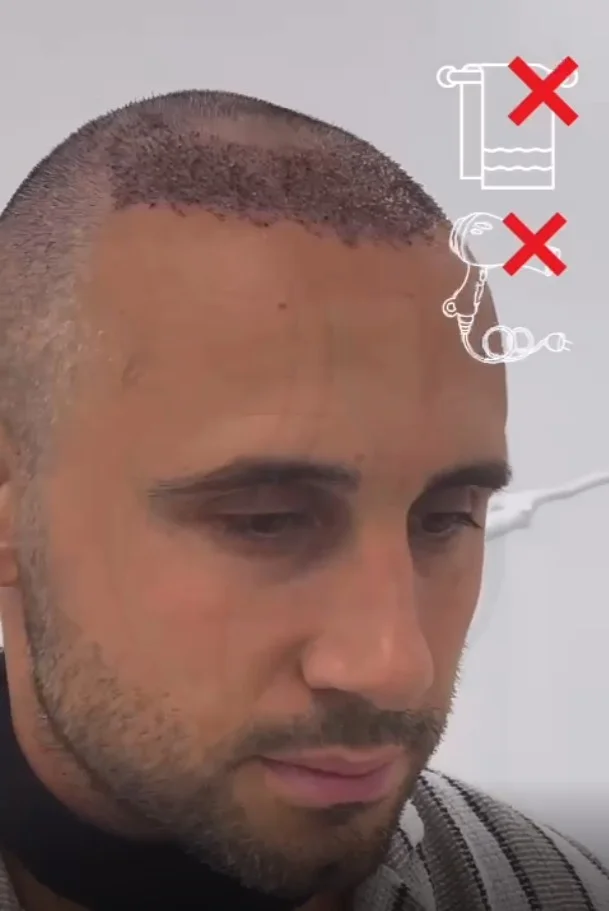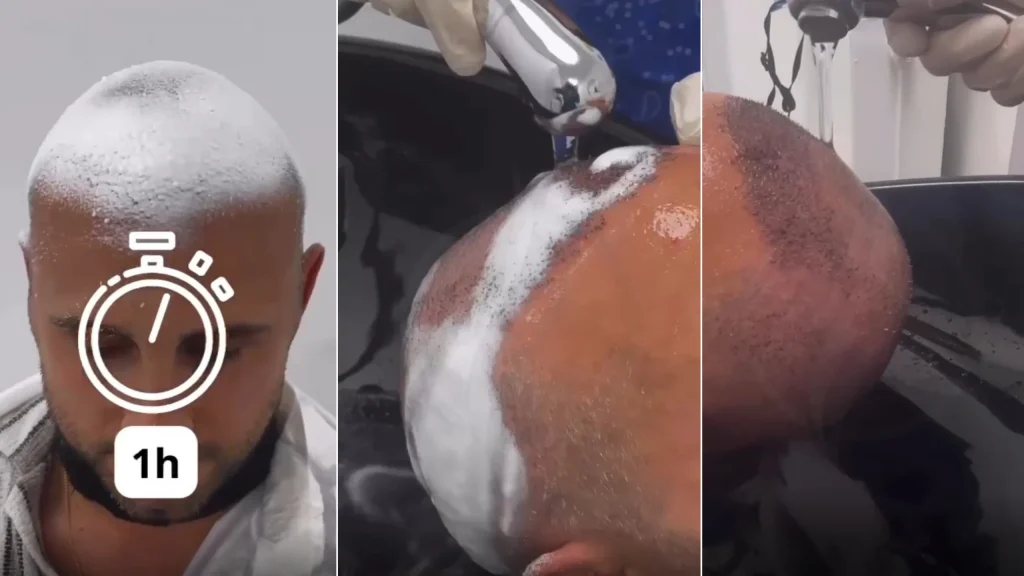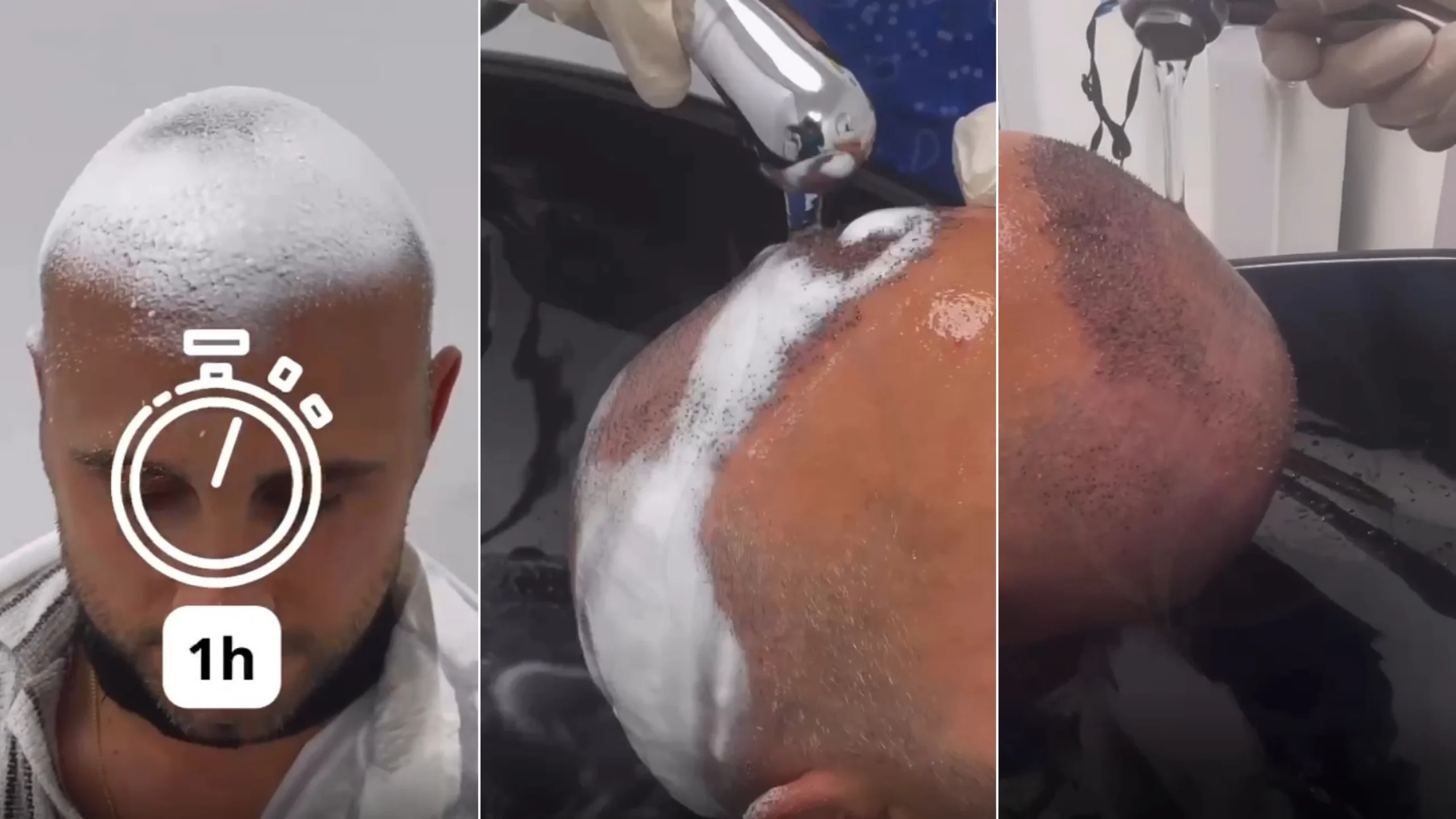Hair Transplant Aftercare: Ways to Protect Grafts and Accelerate Healing
You’ve had a hair transplant and taken a major step toward getting your new hair. However, the success of the procedure is not only dependent on surgical skill; it largely depends on your post-operative hair care routine. Whether it’s FUE aftercare or DHI aftercare, taking the right steps protects the transplanted grafts and ensures you achieve long-lasting results.
The First 48 Hours: The Graft Protection Period
The first 48 hours are the most critical period when the transplanted hair follicles try to anchor to their new sites.
Absolutely Avoid Contact: Do not touch the donor or recipient area. Keep your head elevated while sleeping to prevent accidental contact.
Medication is Essential: Regularly use the painkillers and antibiotics prescribed by your doctor. Furthermore, this practice helps manage pain and minimizes the risk of infection.

The First Wash and Beyond: The Gentle Touch
The first wash after a hair transplant is usually done after the second or third day, under the supervision of a clinic specialist.
Use Special Shampoo and Lotion: You must use the special lotion and shampoo recommended by your doctor. The lotion softens the crusts; on the other hand, the shampoo gently cleans the area.
Avoid Rubbing: Do not rub the recipient area to prevent the grafts from falling out. Instead, apply the shampoo foam gently with your fingertips, pressing lightly. Use low-pressure water for rinsing.
Proper Drying: Do not use a towel! Gently pat the area dry with a clean towel, or use a hairdryer on the cool setting.
Daily Life and What to Avoid
Adherence to post-operative hair care rules is essential for long-term success.
Stay Away from Sweat and Exercise: Avoid intense exercise and activities that cause excessive sweating (sauna, Turkish bath) for the first two weeks. Keep in mind that sweating increases the risk of infection and itching.
Crucial Sun Protection: Avoid direct sun exposure for the first few months. If you need to go out in the sun, use a loose-fitting hat that does not put pressure on your head. Sun exposure can negatively affect the healing process.
Supporting the Healing Process
Hair transplant care is not limited to external cleaning.
Nutrition and Hydration: Drink plenty of water and eat foods rich in vitamins (especially zinc, B vitamins) and protein to support healing.
Alcohol and Smoking: Smoking and alcohol slow down healing by restricting blood flow. If possible, abstain from these substances for at least one month.
By paying attention to these hair transplant tips and instructions, you can ensure your transplant results in a fast, healthy, and successful outcome.





